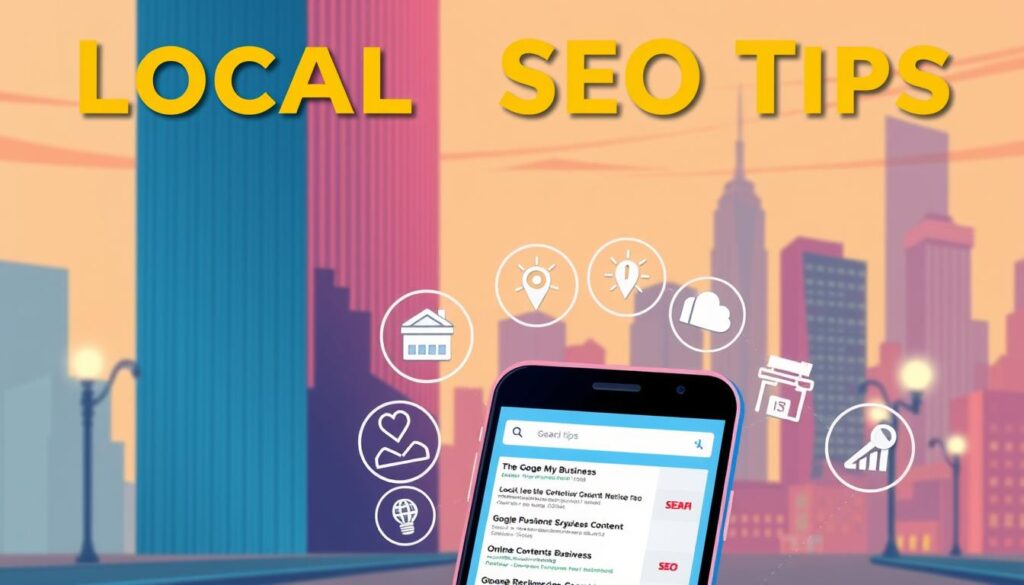In today’s fast-paced digital world, understanding the fundamentals of digital marketing is crucial for UK businesses aiming to thrive online. With over 5.4 billion internet users globally, the digital landscape offers immense opportunities for growth and engagement.
Digital marketing encompasses a variety of tools and platforms, including websites, apps, and social media, allowing businesses to connect with their audience in a more personalised way. Unlike traditional methods, digital marketing provides measurable results, enabling companies to refine their strategies and improve ROI.
This guide simplifies the essentials of digital marketing, offering actionable tips and real-world examples to help you navigate the digital world confidently. Whether you’re looking to enhance your online presence or boost your sales, this guide will provide you with the insights and tools needed to succeed.
As you progress through this guide, you’ll discover how to leverage digital channels effectively, creating tailored marketing strategies that resonate with your target audience. The digital age is here to stay, and with the right approach, your business can thrive in this dynamic environment.
Key Takeaways
- Digital marketing offers personalised communication and tailored strategies for businesses.
- Measurable results allow for continuous improvement and higher ROI.
- Utilising websites, apps, and social media can enhance your online presence.
- Actionable tips and real-world examples will guide you through the digital landscape.
- Creating effective digital strategies helps businesses thrive in today’s fast-paced world.
For more insights on selecting the right digital marketing agency in the UK, visit this guide to make informed decisions for your business.
Understanding Digital Marketing: An Overview
Digital marketing has revolutionized how businesses connect with their audiences, offering precise and efficient ways to deliver messages. It involves using electronic devices and the internet to engage consumers, making it a vital tool for modern businesses.
What It Is and Why It Matters
Digital marketing has evolved from simple email campaigns to sophisticated, data-driven strategies. Today, it’s crucial for reaching and engaging modern consumers, especially in the UK market. Businesses can now target specific audiences with tailored messages, increasing the likelihood of conversion.
The Role of Digital Channels
Digital channels like websites, social media, and email are essential for disseminating marketing messages. These platforms allow businesses to reach a global audience cost-effectively. For instance, targeted campaigns on Facebook and Google demonstrate how digital channels can create measurable engagement and improve customer satisfaction.
| Channel | Reach | Cost | Targeting | Measurability |
|---|---|---|---|---|
| Websites | Global | Variable | High | Analytics |
| Social Media | Global | Low | High | Insights |
| Targeted | Low | High | Open/Click Rates |
Real-time analytics and customization are key advantages of digital marketing. Businesses can adjust campaigns instantly, track performance, and refine strategies for better outcomes. For more insights, visit this guide to explore digital marketing in depth.
What are the basics of digital marketing
Digital marketing is all about connecting with your audience through online channels. It involves strategies like email marketing, SEO, and Google Ads to reach your target audience effectively. As a marketer, your goal is to create campaigns that engage and convert.
Building effective email marketing campaigns is a cornerstone of digital marketing. It allows you to send personalised messages directly to your audience’s inbox. Similarly, initiating Google Ads helps you target specific keywords, ensuring your ads appear when potential customers search for related terms.
Tracking and analysing your campaign performance is crucial. Tools like Google Analytics help you monitor metrics such as click-through rates and conversions. This data allows you to refine your strategies and improve your ROI.
As a digital marketer, your role involves managing multiple tools to reach your audience. Whether it’s through email, social media, or search engines, the key is to deliver the right message at the right time. By focusing on these foundational practices, you can create effective digital marketing strategies that drive real results.
For more insights on digital marketing, visit this guide to explore the essentials in depth.
The Evolution of Digital Marketing from Traditional Methods
Digital marketing has transformed significantly over the decades, evolving from basic email campaigns to sophisticated, data-driven strategies. This journey reflects a broader shift in how businesses engage with their audiences.
A Brief History
The transition from traditional methods like print and TV ads to digital began in the 1990s with email marketing and keyword optimization. The mid-2000s saw the rise of social media platforms, revolutionizing how businesses connect with their audience. Today, digital marketing encompasses a wide range of tools and platforms, enabling precise targeting and measurable results.
Key Shifts in Consumer Behaviour
Consumers are now more interactive and expect personalized content. The rise of social media has empowered audiences to engage actively with brands. This shift has led businesses to adopt social media marketing strategies, creating tailored campaigns that resonate with their target audience. Developing skills in digital marketing allows businesses to craft nuanced strategies, ensuring they deliver the right message at the right time.
By understanding these shifts, businesses can refine their marketing strategy to meet the evolving needs of their audience, fostering deeper connections and driving growth in the digital age.
Exploring Core Digital Marketing Channels and Their Benefits
In the ever-evolving digital landscape, businesses in the UK can leverage various channels to connect with their audience effectively. From websites and mobile apps to search engines, each platform offers unique opportunities to enhance your online presence and drive customer engagement.
Website and App Marketing
A well-designed website is the cornerstone of any digital strategy. It serves as your virtual storefront, providing customers with a seamless experience. Mobile apps, on the other hand, allow you to engage with your audience on-the-go. Together, these platforms help you build a strong online presence and deliver personalised content to your customers.
SEO and SEM Fundamentals
Search Engine Optimisation (SEO) is crucial for improving your website’s visibility on search engines like Google. By optimising your content with relevant keywords, you can drive organic traffic to your site. Search Engine Marketing (SEM), including Google Ads, complements SEO by allowing you to target specific keywords and appear at the top of search results. This dual approach ensures your business gains maximum online traction.
| Channel | Reach | Cost | Targeting | Measurability |
|---|---|---|---|---|
| Websites | Global | Variable | High | Analytics |
| Mobile Apps | Targeted | Medium | Personalised | Usage Metrics |
| Search Engines | Local/Global | Low (SEO)/Paid (SEM) | Precise | Click-Through Rates |
By combining these strategies, you can create a robust digital marketing plan that drives customer acquisition and retention. Remember, a multi-channel approach is key to reaching your target audience effectively in today’s competitive market.
Effective Website and Mobile Optimisation Strategies
With the majority of consumers preferring mobile shopping, optimising your website and mobile presence is essential for UK businesses. A well-designed website and seamless mobile experience can significantly boost your brand’s online visibility and customer engagement.
Mobile-Responsive Design
A mobile-responsive design ensures your website adapts smoothly to all devices, from smartphones to tablets. This is crucial, as 76% of consumers prefer shopping on mobile, according to a Dynamic Yield study. Responsive design improves user experience, reducing bounce rates and increasing conversions. Additionally, Google prioritises mobile-friendly sites in its rankings, enhancing your SEO efforts.
Performance and User Experience
Website performance is vital for user satisfaction. Aim for fast loading times, intuitive navigation, and easy-to-find information. These factors contribute to a positive user experience, encouraging visitors to stay longer and explore your products or services. Integrating SEO practices, such as optimising images and using relevant keywords, further improves your site’s visibility and attracts targeted traffic.
| Optimisation Strategy | Benefits | Impact on SEO |
|---|---|---|
| Mobile-Responsive Design | Enhanced user experience, increased conversions | Improved search engine rankings |
| Fast Loading Speed | Lower bounce rates, higher engagement | Better performance in search results |
| SEO Practices | Targeted traffic, higher visibility | Increased organic search rankings |
By focusing on these strategies, you can create a robust online presence that resonates with your audience and drives growth. For more insights on website optimisation, visit this guide to explore tools and techniques that can elevate your brand’s digital strategy.
Harnessing the Power of Social Media Marketing
Social media has become a cornerstone of modern business strategy, offering unparalleled opportunities to engage with your audience. Platforms like Facebook, Instagram, and Twitter provide direct access to your target market, enabling you to build meaningful connections and drive growth.
Engaging Content and Community Building
Creating engaging content is key to capturing your audience’s attention. Whether it’s through eye-catching visuals or thought-provoking posts, your goal should be to spark conversations and foster a sense of community. For example, a viral hashtag campaign can turn your audience into brand ambassadors, significantly boosting your reach and credibility.
Consistent interaction with your community strengthens trust and loyalty. Responding to comments and messages promptly demonstrates your commitment to customer satisfaction. This personal touch can elevate your brand’s perception and encourage long-term relationships with your audience.
Targeting and Advertising on Popular Platforms
Platforms like Facebook offer advanced tools for targeted advertising, allowing you to reach specific demographics with precision. By setting clear goals, such as increasing followers or boosting brand awareness, you can measure the success of your campaigns effectively.
For instance, a UK-based company used Facebook Ads to promote a new product launch, resulting in a 20% increase in sales within a month. This example highlights how targeted advertising can achieve measurable results and align with your broader marketing strategy.
| Platform | Reach | Engagement | Advertising Options |
|---|---|---|---|
| Global | High | Targeted Ads, Custom Audiences | |
| Visual-Oriented | Engaging | Story Ads, Carousel Ads | |
| Real-Time | Interactive | Hashtag Campaigns, Promoted Tweets |
By integrating social media strategies into your overall digital marketing plan, you can create a cohesive approach that resonates with your audience and drives measurable success.
Content Marketing: Creating Appealing and Informative Content
Content marketing is a powerful strategy that helps businesses build trust and attract audiences. By creating valuable and relevant content, you establish your brand as an authority in your industry. This approach not only drives traffic but also fosters long-term relationships with your audience.
Blog Posts and Resource Creation
A digital marketer’s role involves crafting content that resonates with their target audience. Blog posts, for instance, are an excellent way to provide insights and solutions. For example, a service-focused blog can highlight how your offerings solve specific problems, driving both traffic and engagement.
Consistency is key to maintaining an engaged readership. Regularly publishing high-quality content ensures your audience keeps coming back. Additionally, resources like eBooks or whitepapers can serve as valuable tools, positioning your brand as a trusted source of information.
By focusing on your audience’s needs, you create content that not only attracts visitors but also encourages loyalty.This dual benefit makes content marketing a cornerstone of any successful digital strategy.
Mastering Email Marketing and PPC Advertising
Email marketing and PPC advertising are two powerful tools that can elevate your digital strategy. Both offer measurable results, allowing you to refine your approach and boost sales. Let’s explore how to master these techniques effectively.
Email marketing excels at delivering personalised messages directly to your audience’s inbox. By segmenting your mailing lists, you can ensure your content resonates with specific groups. For instance, a welcome email series can increase engagement and conversions. Crafting clear, concise subject lines and messages is key to capturing attention and driving action.
PPC advertising, on the other hand, provides immediate results. Platforms like Google Ads enable you to target specific keywords and demographics, ensuring your ads reach the right people at the right time. With PPC, you can achieve immediate visibility and adjust your campaigns in real-time to optimise performance.
| Channel | Cost-Effectiveness | Measurability | Targeting |
|---|---|---|---|
| Email Marketing | High | Open/Click Rates | Segmented Lists |
| PPC Advertising | Variable | CTR & Conversions | Keyword & Demographic |
Blending traditional marketing principles with modern digital techniques can enhance your campaign performance. For example, combining email newsletters with PPC ads can create a cohesive strategy that drives both immediate and long-term results. Real-time monitoring allows you to adjust your approach, ensuring maximum impact and continuous improvement.
By mastering email marketing and PPC advertising, you can create a robust digital strategy that resonates with your audience and drives measurable success. These tools not only boost sales but also foster long-term customer relationships, essential for sustained growth in today’s competitive market.
Leveraging Analytics and KPIs for Measurable Success
In the data-driven world of digital marketing, analytics and KPIs are your compass for navigating towards success. By tracking key metrics, you can gauge the effectiveness of your campaigns and make data-driven decisions to refine your strategies.
Tracking Click-Through and Conversion Rates
Click-through rate (CTR) and conversion rate are two essential KPIs. CTR measures how engaging your content is, while conversion rate reveals how effective it is at driving desired actions. For example, a high CTR but low conversion rate may indicate a disconnect between your ad and landing page.
Interpreting Social Media and Website Traffic Data
Tools like Google Analytics help you interpret social media engagement and website traffic. High social media engagement suggests your content resonates, while a high website bounce rate may indicate unmet user expectations.
| Metric | What It Measures | Importance |
|---|---|---|
| Click-Through Rate (CTR) | Engagement with your ads or content | Indicates content relevance |
| Conversion Rate | Actions taken by users | Shows effectiveness in driving results |
| Engagement Rate | Audience interaction | Reflects content resonance |
| Bounce Rate | Users leaving after one page | Indicates user satisfaction |
By setting SMART goals and using A/B testing, you can continuously refine your strategies. Remember, analytics is not just about collecting data—it’s about using it to improve and achieve measurable success.
Building Your Brand Through Digital Engagement
Personalised communication is key to fostering deeper connections with your audience in today’s competitive online landscape. By tailoring your messages, you create meaningful interactions that resonate on a personal level.
Personalisation and Customised Messaging
Customised messaging helps your brand stand out, making your audience feel valued and understood. For instance, using data analytics to craft targeted campaigns can significantly boost engagement and conversions.
Techniques like segmentation and A/B testing allow you to refine your approach, ensuring your content meets individual needs. Integrating these strategies across email, social media, and websites creates a cohesive brand experience.
| Strategy | Benefits |
|---|---|
| Personalised Emails | Higher engagement and conversion rates |
| Customised Ads | Increased relevance and click-through rates |
| Segmented Campaigns | Targeted messaging for different audience groups |
Brands like Amazon exemplify this through tailored recommendations, enhancing user experience and loyalty. By leveraging analytics, you can create content that truly resonates, driving trust and long-term relationships.
For a deeper dive into effective digital customer engagement, visit Qualtrics to explore advanced tools and insights.
Strategies Tailoured for UK Businesses in the Digital Age
In the UK’s thriving digital economy, businesses need tailored strategies to stand out and connect with their audience effectively. With the digital sector contributing nearly £151 billion to the economy in 2019, the opportunities for growth are immense. To succeed, UK businesses must adapt to current market trends and leverage localised content to build trust with their audience.
One effective strategy is to use platforms like Twitter for engaging with your audience. For example, a British retailer leveraged Twitter to launch a viral hashtag campaign, increasing brand awareness by 30%. Additionally, focusing on localised content ensures your messaging resonates deeply with UK consumers, fostering trust and loyalty.
To enhance campaign effectiveness, utilise local data and insights. For instance, targeting specific regions with personalised messages can significantly boost engagement. Many UK businesses have seen success by segmenting their email lists, resulting in a 760% increase in revenue from email campaigns.
| Strategy | Benefits |
|---|---|
| Twitter Engagement | Increased brand awareness and customer interaction |
| Localised Content | Builds trust and resonates with UK audience |
| Targeted Campaigns | Higher conversion rates through personalised messaging |
By implementing these strategies, UK businesses can establish a strong digital presence and drive growth in today’s competitive market.
Conclusion
As you conclude your journey through this comprehensive guide, it’s clear that digital marketing is a dynamic field that offers immense opportunities for UK businesses. By mastering the fundamentals, from SEO and social media to email and content marketing, you can create a cohesive strategy that drives growth and engagement.
The key to success lies in combining these strategies effectively. For instance, SEO helps improve your website’s visibility, while social media and email marketing foster direct connections with your audience. Content marketing, on the other hand, builds trust and establishes your brand as an authority in your industry.
Continuous learning and adaptation are crucial in this ever-evolving field. As a digital marketing expert, staying updated with the latest trends and tools will help you refine your approach and achieve better results. Remember, digital marketing is not just about reaching your audience—it’s about delivering value and building lasting relationships.
With the insights and actionable tips provided, you’re now equipped to enhance your digital marketing efforts. Don’t hesitate to explore further resources and start implementing these strategies to elevate your brand’s online presence. The digital world is full of opportunities, and with the right approach, your business can thrive.
FAQ
What is digital marketing and how does it benefit my business?
Digital marketing is the promotion of products or services using digital channels like search engines, social media, and email. It helps you reach a wider audience, engage customers, and drive sales more effectively than traditional methods.
How do I get started with SEO for my website?
Start by conducting keyword research to identify terms your target audience uses. Optimize your website with relevant keywords, create high-quality content, and build backlinks to improve your search engine rankings.
What is the best way to measure the success of my social media campaigns?
Track key metrics like engagement rates, click-through rates, and conversions. Use analytics tools provided by platforms like Facebook and Twitter to monitor performance and adjust your strategy accordingly.
How can I improve my email marketing results?
Personalise your emails, segment your audience, and use compelling subject lines. Include clear calls-to-action and ensure your emails are mobile-optimised for better engagement and conversions.
What is the difference between digital marketing and traditional marketing?
Digital marketing focuses on online channels and provides measurable results, while traditional marketing uses offline methods like print and TV. Digital marketing is often more cost-effective and allows for precise targeting of your audience.
How can I increase traffic to my website?
Use a combination of SEO, content marketing, and paid advertising. Create valuable content, optimise for mobile, and leverage social media to drive visitors to your site.
What role does content play in digital marketing?
Content is key to attracting and engaging your target audience. It helps build trust, establishes your brand as an expert, and drives long-term results through SEO and social sharing.
How do I create an effective digital marketing strategy?
Define your goals, know your audience, and choose the right channels. Focus on creating quality content, monitor your analytics, and adjust your approach based on the data to ensure continuous improvement.
What is the importance of mobile optimisation for my business?
Mobile optimisation ensures your website and content look and perform well on mobile devices. With most users accessing information on smartphones, it’s crucial for improving user experience and search engine rankings.
How can I build trust with my customers online?
Provide clear and transparent information, deliver on your promises, and engage with your audience authentically. Use customer reviews and testimonials to build credibility and trust.
What are the key trends in digital marketing that I should be aware of?
Stay updated on trends like AI-powered marketing tools, voice search optimisation, and video content dominance. These trends can help you stay ahead of the competition and better connect with your audience.










